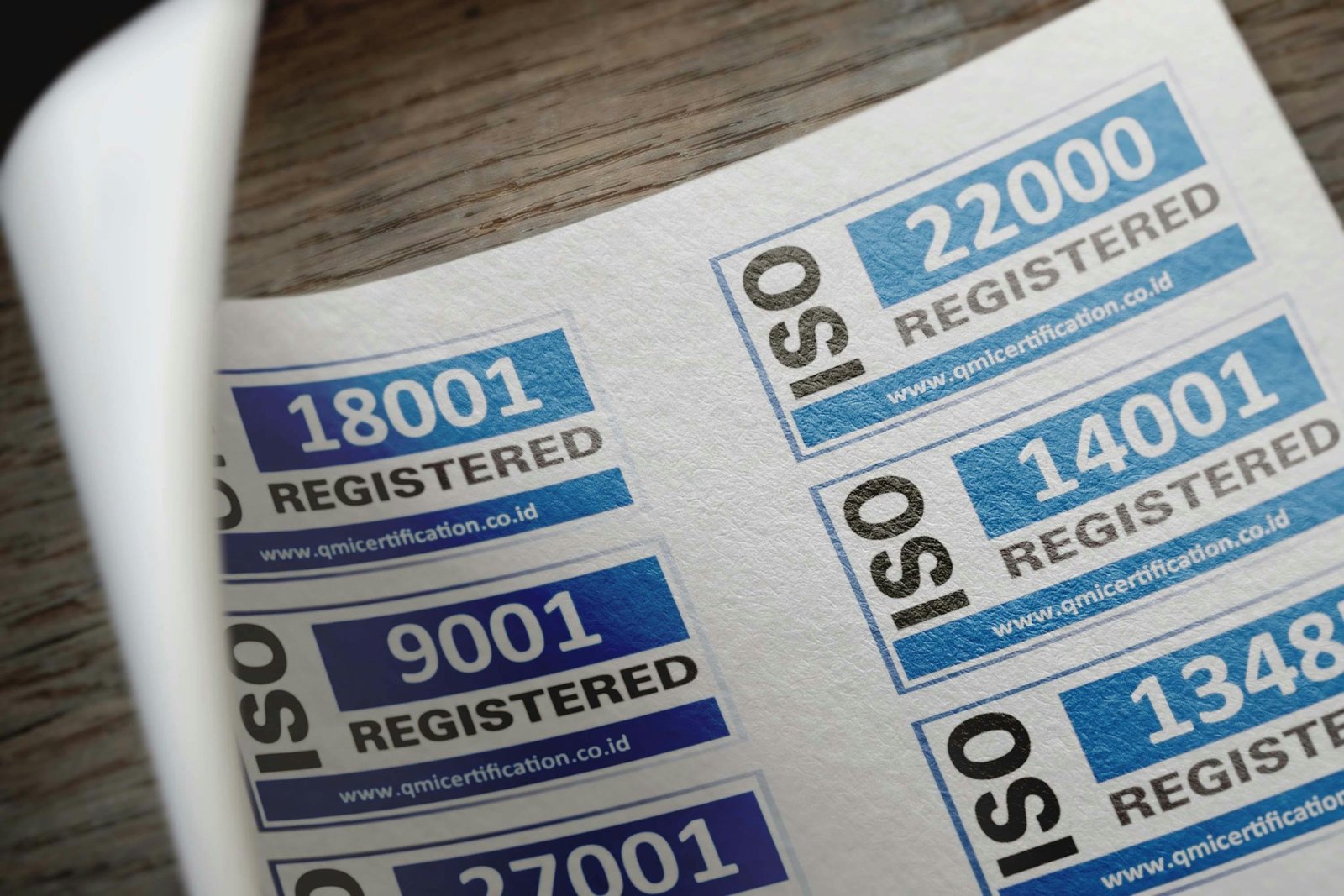What is the Difference Between ISO 9001 and FSSC 22000?
ISO 9001 and FSSC 22000 are both internationally recognized certification systems, but they serve different purposes. While ISO 9001 focuses on quality management, FSSC 22000 is specifically designed for food safety management. Below, we highlight the key differences between these two standards in a point-form format to improve SEO.

1. Overview of ISO 9001 and FSSC 22000
- ISO 9001: A quality management system (QMS) standard applicable to all industries.
- FSSC 22000: A food safety certification scheme for food and beverage industries.
- Both standards help businesses improve operational efficiency and customer satisfaction.
2. Scope and Industry Application
- ISO 9001:
- Focuses on general quality management across all industries.
- Used by organizations in manufacturing, services, healthcare, construction, etc.
- FSSC 22000:
- Specifically designed for food safety management.
- Used by food manufacturers, packaging companies, catering, and food retailers.
3. Primary Objectives
- ISO 9001:
- Ensures consistent product and service quality.
- Aims to enhance customer satisfaction.
- Implements process-based management and continuous improvement.
- FSSC 22000:
- Ensures food safety compliance across the supply chain.
- Prevents food contamination and foodborne illnesses.
- Uses risk-based food safety management practices.
4. Core Requirements
- ISO 9001:
- Based on a Plan-Do-Check-Act (PDCA) cycle.
- Includes customer focus, leadership, and risk-based thinking.
- Requires continuous monitoring and improvement.
- FSSC 22000:
- Incorporates ISO 22000 (food safety management system).
- Requires hazard analysis and critical control points (HACCP).
- Includes sector-specific prerequisite programs (PRPs).
5. Certification Process
- ISO 9001:
- Conduct an internal audit and management review.
- Undergo a certification audit by an accredited body.
- Maintain certification through periodic surveillance audits.
- FSSC 22000:
- Implement food safety management principles.
- Conduct HACCP analysis and risk assessments.
- Undergo rigorous certification audits and periodic reviews.
6. Regulatory and Compliance Aspects
- ISO 9001:
- Not industry-specific but ensures quality compliance.
- Often required by customers and stakeholders.
- FSSC 22000:
- Complies with food industry regulations and GFSI standards.
- Mandatory for companies operating in food production and distribution.
7. Implementation and Benefits
- ISO 9001:
- Improves business efficiency and operational consistency.
- Increases customer trust and market competitiveness.
- FSSC 22000:
- Enhances food safety management and regulatory compliance.
- Reduces food safety risks and ensures consumer protection.

While ISO 9001 focuses on overall quality management across industries, FSSC 22000 is specifically designed for food safety. Businesses in the food sector should consider FSSC 22000 for regulatory compliance, while those looking to enhance general quality and efficiency may benefit from ISO 9001. Understanding the differences between these two certifications helps businesses choose the right standard for their needs.


